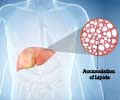A low-carbohydrate diet, a low-fat diet and the Mediterranean diet have been found effective in helping obese people to reverse carotid atherosclerosis, researchers have reported.
A low-carbohydrate diet, a low-fat diet and the Mediterranean diet have been found effective in helping obese people to reverse carotid atherosclerosis, researchers have reported.
The study has been published in Circulation: Journal of the American Heart Association.To reach the conclusion, boffins at Ben-Gurion University of the Negev, the Nuclear Research Center and Soroka Hospital in Israel investigated whether diet could reverse atherosclerosis, a slow, progressive condition in which the arteries thicken with plaque buildup, increasing risk of heart attacks and strokes. The research team compared the three diets among overweight articipants, mostly men, who were at high risk for atherosclerosis.
After two years, researchers noted a significant 5 percent regression in average carotid vessel-wall volume and 1.1 percent decrease in carotid artery thickness.
Compared to participants who had increased carotid wall volume, those with decreases had other improvements: greater weight loss; decreased systolic blood pressure levels; improved homocysteine levels; and an increase in apolipoprotein A1 (Apo A1), the major component of "good" cholesterol.
The findings indicate that sustained, moderate weight loss - not the macronutrient content of the different diets - leads to improved cardiovascular health.
"Long-term adherence to weight-loss diets is effective for reversing carotid atherosclerosis as long as we stick to one of the current options of healthy diet strategy," said Iris Shai, R.D., Ph.D., study lead author and a nutrition epidemiologist at Ben-Gurion University of the Negev in Beer-Sheva, Israel. "This effect is more pronounced among mildly obese persons who lose ore than 5.5 kilograms (12.1 lbs) of body weight and whose systolic blood pressure decreases by more than 7 mmHg. An increase in ApoA1 (HDL cholesterol apolipoprotein) and a decrease in total homocysteine blood levels are further associated with subsequent success in reversing carotid atherosclerosis."
Advertisement
SRM















